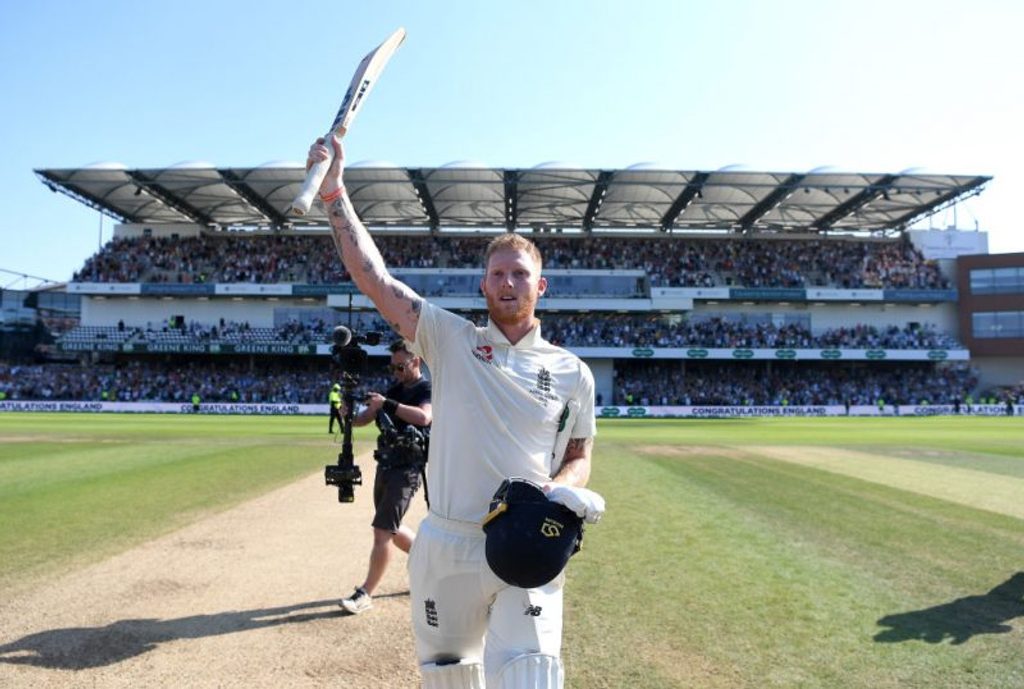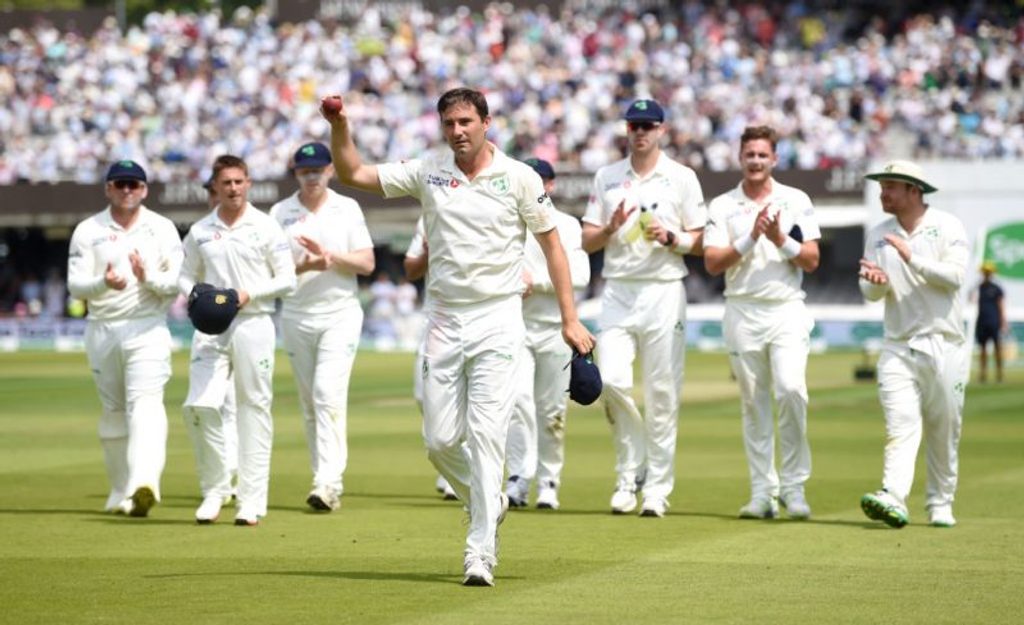
Wisden’s writers give their take on what changed for the better in 2019, and what needs to change next year.
2019 was one of the most memorable year’s in cricket history, and there were many reasons why it will be celebrated and remembered fondly, from Ben Stokes making a habit of playing epic knocks, Kusal Perera helping Sri Lanka create history in South Africa, Test cricket finally returning to Pakistan, and much else besides.
It wasn’t just the on-field action either. The use of concussion substitutes, the empowerment the players feel to speak about mental health were all big parts of why many left 2019 feeling positive. But there remains plenty to be improved upon, and in amongst the sparkling action were several warning signs to suggest the game’s continued flourishing mustn’t be taken for granted.
And so, we at Wisden sat down and decided to list out exactly what we liked about 2019, and what we’d like to change next year.
What changed for the better in 2019?
Karunya Keshav: Cricket shed its macho, take-it-on-the-chin attitude a tad, be it in embracing concussion protocols or in participating in frank conversations around mental health. There’s still work to be done, but the ability to embrace practical realities and acknowledge danger, while separating it from misplaced nostalgia has been a welcome change.
Manoj Narayan: The sport became sexy again. The authorities still need to do a lot to get bums on seats – and in the sub-continent in particular, that starts with making for a better stadium experience for fans – but as far the sport itself was concerned, the last year was near-perfect. From Kusal Perera’s epic in South Africa to Ben Stokes heists at Lord’s and Headingley, the cricket was of the highest quality in 2019, and dare I say, should have influenced quite a few children to take it up.
[caption id=”attachment_133162″ align=”alignnone” width=”800″] Ben Stokes played a big role in making cricket sexy again this year[/caption]
Ben Stokes played a big role in making cricket sexy again this year[/caption]
Akshay Gopalakrishnan: It took a nonsensical finish to a World Cup final that really should have been remembered for other reasons, but we’ve finally seen the back of the horrific boundary count rule at ICC events. It’s a shame, really, that it took such a highly undesirable outcome for the mindlessness of the rule to come to the fore, but such is the nature of human psychology – it often takes an event of spectacular magnitude and massive implications to realign our perspectives. But better late than never.
Ben Gardner: The introduction of concussion substitutes is both welcome and overdue as cricket attempts to get serious about tackling the horrors of repetitive head injury, though it, as all sports do, still has a long way to go.
Aadya Sharma: The increasing importance given to associate cricket, as well as women’s cricket, and the affection showered by the public to ensure these aren’t neglected forms of the game. There’s more awareness and respect for the players on those fronts, and even though there’s a long way to go yet, the development over the last two years has been heartwarming.
Sonali Dhulap: There was a realisation that mental health issues are real, and you cannot just sweep it under the carpet. Cricketers weren’t afraid to talk about it openly anymore, and mental health is no longer viewed as taboo in the sport. In an era where fitness is increasingly important, it’s heartening to see cricket embracing this change so readily.
[caption id=”attachment_94506″ align=”alignnone” width=”1024″] Cricket went over and beyond in helping those players struggling with mental health[/caption]
Cricket went over and beyond in helping those players struggling with mental health[/caption]
Rupin Kale: The movement of cricketers towards plant-based diets. This year, many players, including some big names, busted myths about sports nutrition and recovery. Along with cricketers adopting a whole-food, plant-based diet, many teams have tried to make changes at the grassroots level with an eye on sustainability and health. Be it incorporation of vegan menus or experiments on leather substitutes within the cricket ball, the sport has taken a significant step in the right direction.
Yeh, go on then. pic.twitter.com/gUxC8IFFER
— Wisden (@WisdenCricket) December 31, 2019
Garima Srivastava: New Zealand Cricket offering contracts to 79 women players – it’s a huge step forward for the women’s game. It’s a move that will only encourage more participation from women cricketers in New Zealand. A pay hike to the centrally-contracted players, and contracts for domestic players would help further encourage this participation.
Roshan Gede: Really appreciate Glenn Maxwell for taking a break for mental health, and the Australia management acknowledging his decision. It is something that needs to be taken seriously, given the amount of cricket these days.
What needs to change in 2020?
KK: The sport needs to grow more environmentally conscious and practise sustainability. This includes the gamut from taking a stand against single-use plastic noise-makers and cups at stadiums, to water-conservation while maintaining grounds, from developing heat management resources at all levels to examining its own carbon footprint and place in the climate change conversations. For starters, it should mean no players or spectators are subjected to pollution in Delhi or bushfire smoke in Sydney.
[caption id=”attachment_131908″ align=”alignnone” width=”800″] Cricket in the times of bushfires and AQIs[/caption]
Cricket in the times of bushfires and AQIs[/caption]
BG: The mooted India-Australia-England-Another Super Series would be just the latest step backwards for a sport that still needs to take several strides forward if it wants to be considered a truly global game. The recent cancellations of Test matches involving Ireland are just another reminder of the precarious financial state most cricket nations exist in.
MN: The authorities really need to take the health of players more seriously. The fact that the T20I between India and Bangladesh was allowed to go ahead in November, when New Delhi was being equated to a gas chamber, was unbelievable, but unfortunately, not unexpected. BCCI president Sourav Ganguly’s tweet after the match, thanking players for playing in it, was a nice touch, but this isn’t just a problem restricted to one place. A BBL clash in December was abandoned due to smoke from the bushfires. Maybe … hopefully … 2020 is the year health of players is taken more seriously.
AG: This is an old cry, but one that’s more relevant than ever after the year we’ve had: cricket seriously needs to become more inclusive. The ICC can parade all the numbers it wants about a World Cup that broke new boundaries with its reach and engagement, but the fact remains that cricket continues to be an elitist sport that caters to a highly niche demography.
Even a name as big as Virat Kohli has identified cricket’s potential in untested markets, such as the United States, which Kohli predicted would become a major player in the decade to come. If that truly is the case, then we need to see more than a couple of T20 internationals in Florida once every two years to appease the Indian disapora. It also means no more ten-team World Cups, eight-team Champions Trophies, and a permanent end to the ‘Big Three’ and their scheming strategies.
[caption id=”attachment_129046″ align=”alignnone” width=”800″] Cricket is still discriminatory and exclusive – that needs to change in 2020[/caption]
Cricket is still discriminatory and exclusive – that needs to change in 2020[/caption]
AS: It would be good to see a visiting team break India’s domination at home, and open up the competition in the World Test Championship. From a larger point of view, more coverage is needed for lower-ranked teams in international cricket for them to showcase their game to a bigger audience. Furthermore, a salary cap needs to be instated on uncapped players in T20 tournaments like the IPL, to ensure youngsters aren’t distracted by money in the nascent stages of their career.
SD: In 2019, Cricket Australia launched a transgender policy for top-level cricket and it would be amazing to see other cricket boards following in their footsteps. Cricket, like any other sport, should be inclusive, especially on the basis of gender.
RK: Cricket needs to do more against cases of sexual harassment. The #MeToo movement hit the BCCI in 2019 with the allegations against then-CEO Rahul Johri, but though he was found not guilty, the handling of the case by a three-member committee has left a lot of questions unanswered. Elsewhere, Scott Kuggeleijn making his debut for the Black Caps was another disappointing aspect of the year, given the rape case against him in 2016.
[breakout id=”0″][/breakout]
GS: Ireland famously achieved Test status in 2018, but they will go all of 2020 without playing a single Test. This news emerged a little before BCCI supremo Ganguly proposed a Super Series involving the Big Three – India, Australia, and England – and one other invited team. It’s a move that’s not going to help teams like Ireland or the Associate nations hoping to break through. There is a big gap between the haves and have nots in cricket, and hopefully, that’ll slowly change in 2020.
RG: More opportunities for associate nations in ICC events is vital. The 10-team 2019 World Cup was a huge success, but the game can only grow if Associate teams are given more exposure. It’s largely through global events that the they rise through the ranks. Ireland had an instant impact in the 2007 World Cup, and Afghanistan as well have evolved steadily as a team through these events. Not taking anything away from ICC’s pathway events, but the exposure at the world stage is a game-changer for a lot of these teams.







